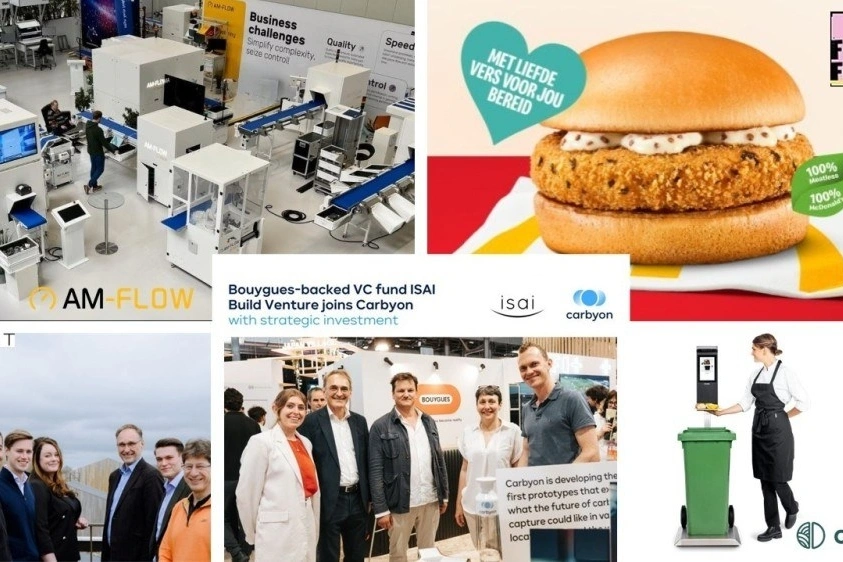AM-Flow kicked off the quarter with a world first. The Eindhoven-based company launched the first in-line quality control system for, among other things, 3D printed products. The technology allows objects to be inspected quickly and fully automatically. This brings fully automated high mix high volume production in the manufacturing industry much closer.
High mix, high volume means you produce many different products and many units of each. It combines the complexity of customisation with the pressure of mass production. Companies that do this well are often technologically advanced and can produce sustainably: more customisation means less waste.
Extra funds for CO₂ vacuum cleaner
RIFT signed a first commercial contract for the application of Iron Fuel Technology. This circular fuel uses iron powder as an energy carrier and offers a CO₂ and NOx-free alternative for heat generation. This makes RIFT the first company in the world to implement Iron Fuel as a low-carbon fuel on an industrial scale.
Carbyon also made significant progress. The company is working on a kind of vacuum cleaner that removes CO₂ from the air. The machine uses a special porous material with a large surface area to capture CO₂ from the air. Carbyon recently received new investments from the ISAI Build Venture Fund. With this money, the company can further develop its technology and apply it on a larger scale.
Orbisk, active in food waste reduction, saw demand for its technology increase. Orbisk's system uses image recognition and data analysis to provide insight into waste streams in professional kitchens. The company is currently expanding the team significantly.
McKroket with a Brabant touch
The dried jackfruit fiber from FiberFoods found its way back to a familiar burger. The plant-based Meatless McKroket - which includes that jackfruit fiber - returned to the menu of McDonald's Netherlands. The result: a McKroket that is just as tasty, but with a much smaller ecological footprint.
Avoxt secured new capital for the further development of energy storage and conversion technology. The investment round, which included BOM, also attracted other investors.
Not a thing in the future, but having impact now
inPhocal received additional funding of 5 million euros. The company is developing a laser that makes printing without ink possible. With inPhocal's laser, you can label products and packaging with codes or labels. The investment is intended to accelerate the commercial rollout.
BOM continues to fully commit to companies that contribute to a livable future. These results prove that climate technology from Brabant is no longer future music, but already making an impact.
